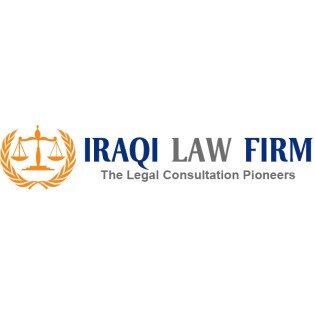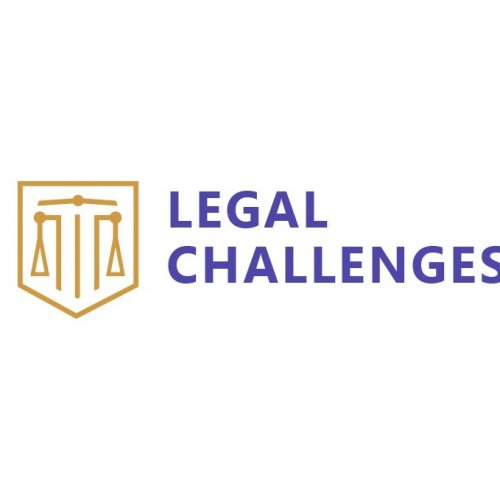Best Administrative Lawyers in Baghdad
Share your needs with us, get contacted by law firms.
Free. Takes 2 min.
List of the best lawyers in Baghdad, Iraq
About Administrative Law in Baghdad, Iraq
Administrative law in Baghdad, Iraq, regulates public administration, including all the government departments and agencies. It oversees the conduct, duties, and responsibilities of these public service entities, as well as any disputes that arise around administrative procedures or the decisions of administrative agencies. Further, the law upholds the rights and duties of individuals or corporate entities dealing with public bodies. This law is a cornerstone for ensuring a smooth-running public sector, while maintaining the rights of the citizenry.
Why You May Need a Lawyer
In Baghdad, individuals or businesses typically require an administrative lawyer when they need to challenge decisions made by public bodies affecting their rights or interests. This may include matters related to licenses and permits, zoning variances, regulatory compliance, public contracts, taxation or pension disputes, or sanctions imposed by regulatory bodies. Given the complex nature of such cases, engaging a lawyer ensures proper legal representation and a better opportunity for a successful resolution.
Local Laws Overview
Administrative law in Baghdad is primarily influenced by the constitution of Iraq and statutes enacted by the Iraqi parliament. It also reflects the regulations of specific government agencies. These laws are designed to prevent misuse of power by public officials, ensure fair and just decision-making, and protect citizens' rights. Dealing with public authorities often involves the administrative court, especially when seeking judicial reviews of administrative decisions.
Frequently Asked Questions
Do I have a right to appeal an administrative decision?
Yes, in most cases, individuals, entities, or businesses have the right to challenge administrative actions or decisions they deem unfair or prejudicial through the administrative court.
How long do I have to challenge an administrative decision?
The timeframe to challenge an administrative decision varies depending on the specific law under which the decision was made. Consulting with an administrative lawyer will provide a clear picture of all relevant deadlines.
What is the role of an administrative lawyer?
An administrative lawyer advises and represents you before various government agencies by ensuring compliance with rules and regulations, helping secure necessary licenses or permits and challenging unfair administrative decisions.
What kind of issues can be addressed under administrative law?
Issues ranging from permits for property development, tax disputes, fines or penalties issued by government agencies, public procurement and contracting issues, to entitlement to public benefits or services, among others, are addressed under administrative law.
Can administrative decisions be reviewed in court?
Yes, administrative decisions can be challenged in court under a process known as judicial review.
Additional Resources
You may find the following bodies helpful when seeking further information on administrative law in Baghdad: Baghdad Administrative Court, Iraq Ministry of Justice, Baghdad Municipal Council, and various regulatory authorities pertaining to your specific issue. Online resources, such as the Legal Database of Iraq (LAW), may also be beneficial.
Next Steps
If you require legal assistance in matters of administrative law, consider contacting a local law firm specialized in this field. Initial consultation services are usually offered to better understand your legal situation and discuss potential strategies. It is advisable to prepare all related documents before your meeting for a productive exchange. Remember, hiring a competent administrative lawyer is a critical step in addressing your legal concerns effectively.
Lawzana helps you find the best lawyers and law firms in Baghdad through a curated and pre-screened list of qualified legal professionals. Our platform offers rankings and detailed profiles of attorneys and law firms, allowing you to compare based on practice areas, including Administrative, experience, and client feedback.
Each profile includes a description of the firm's areas of practice, client reviews, team members and partners, year of establishment, spoken languages, office locations, contact information, social media presence, and any published articles or resources. Most firms on our platform speak English and are experienced in both local and international legal matters.
Get a quote from top-rated law firms in Baghdad, Iraq — quickly, securely, and without unnecessary hassle.
Disclaimer:
The information provided on this page is for general informational purposes only and does not constitute legal advice. While we strive to ensure the accuracy and relevance of the content, legal information may change over time, and interpretations of the law can vary. You should always consult with a qualified legal professional for advice specific to your situation.
We disclaim all liability for actions taken or not taken based on the content of this page. If you believe any information is incorrect or outdated, please contact us, and we will review and update it where appropriate.















